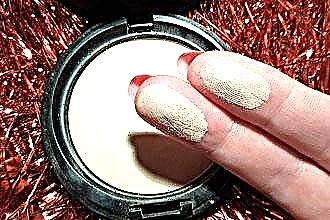Hearing is a valuable function of the sense organs, which allows you to receive information about the world around you, learn new knowledge, and communicate freely. A person constantly evaluates the surrounding sounds he hears, without even attaching importance to it. The habit of listening to what is happening around in many people causes a sensitive sleep. At the same time, an important feature is the ability to move away from the sound source, to reduce its impact - but only if we are talking about external acoustic stimuli. Subjective noises, expressed as ringing in the ears and head, can be extremely intrusive and annoying, haunting the patient even in silence. They interfere with rest, focus on performing everyday tasks - moreover, they can be a sign of dangerous pathologies.
Causes
 Ringing in the head is a symptom familiar to many. People who are sensitive to high air temperatures may hear a ringing noise while in a stuffy trolley bus or sunbathing in direct sunlight. It is usually associated with dizziness, darkening of the eyes and is a harbinger of fainting. The causes and treatment of tinnitus in this case are clear; A short rest in the fresh air in the shade, combined with drinking cool clean water, helps to quickly improve the patient's condition. However, what if the ringing occurs frequently, it can occur even in a relatively calm state? What to do if it persists permanently?
Ringing in the head is a symptom familiar to many. People who are sensitive to high air temperatures may hear a ringing noise while in a stuffy trolley bus or sunbathing in direct sunlight. It is usually associated with dizziness, darkening of the eyes and is a harbinger of fainting. The causes and treatment of tinnitus in this case are clear; A short rest in the fresh air in the shade, combined with drinking cool clean water, helps to quickly improve the patient's condition. However, what if the ringing occurs frequently, it can occur even in a relatively calm state? What to do if it persists permanently?
To begin with, it is worth talking about what pathologies can be accompanied by this symptom:
- Meniere's disease.
- Acoustic trauma, barotrauma.
- Autonomic dysfunction syndrome.
- Migraine.
- Arterial hypertension.
- Hunt's Syndrome.
- Slader's Syndrome.
Constant ringing may indicate the development of sensorineural hearing loss.
Ringing noise as a sign of sensorineural hearing loss is an important symptom to watch out for right away. It appears unexpectedly, combined with a sharp deterioration in hearing acuity. In the case of a chronic variant of the pathology, patients notice ringing for a long time. Sudden hearing loss requires urgent treatment. There are many reasons for persistent tinnitus, but the best tactic is to make sure that all measures are taken to preserve hearing function.
Meniere's disease can cause ringing in the ears and head. Treatment cannot be postponed: although the disease lasts for decades, the patient's condition is constantly deteriorating. In case of acoustic trauma, barotrauma, or a combination of these types of injuries, ringing noise occurs immediately, is very pronounced, and can dominate the rest of the patient's sensations. Since the acuity of hearing sharply decreases, it seems to the patient that he hears only a ringing, absolutely not distinguishing the voices of the surrounding people and extraneous sounds.
The onset of ringing in the syndrome of autonomic dysfunction is possible both in a calm state and after physical exertion, emotional stress. Attacks of noise can be associated with an increase in blood pressure.
Migraine
Migraine is a disease in which a painful headache is the leading symptom. It is believed that a hereditary predisposition is important in the development of pathology. Pathogenesis and causes are still being studied. Treatment of ringing in the ear is impossible without the elimination of pain. You should be aware that the "noise background" with migraine acquires mainly high-frequency tonality.
The noise in the ear usually disappears after sleep.
A migraine attack tires the patient, causing a strong urge to go to sleep. If you manage to cope with the headache, then after waking up, there is also no ear ringing. Migraine sufferers are sensitive to sensory stimuli of varying severity. Loud sounds and bright lights can cause ringing in the ears and head.
Arterial hypertension
 Arterial hypertension is a syndrome, the pathogenetic basis of which is an increase in blood pressure. One of the most common diseases in the clinical picture of which arterial hypertension occurs is hypertension. It can be essential and symptomatic (associated with pathologies of various body systems - in particular, endocrine).
Arterial hypertension is a syndrome, the pathogenetic basis of which is an increase in blood pressure. One of the most common diseases in the clinical picture of which arterial hypertension occurs is hypertension. It can be essential and symptomatic (associated with pathologies of various body systems - in particular, endocrine).
Tinnitus may be associated with hypoxia of the auditory receptors.
In hypertensive disease, the noise is constant, monotonous or periodic, arising from an increase in blood pressure.
Hunt Syndrome, Slader Syndrome
Hunt's syndrome, or ganglionitis of the knee node, is a viral disease, some of the symptoms in the clinical picture of which are explained by damage to the facial nerve. Slader's syndrome (pterygopalatine ganglionitis) develops as a result of damage to the paranasal cavities. The noise occurs sharply, paroxysmal against the background of pain syndrome.
In both cases, a one-sided lesion is characteristic, the appearance of ringing in only one ear. You need to start therapy immediately after confirming the diagnosis - as soon as the reasons are clarified. Treatment for ringing in the left ear or on the right side should be carried out in a specialized department of the hospital.
Treatment
For all variants of diseases accompanied by ear noise, treatment of the underlying pathology is necessary. To alleviate the condition and reduce the intensity of the ringing, apply:
- drugs that improve cerebral circulation (Vinpocetine);
- B vitamins, Nicotinic acid;
- preparations containing Ginkgo biloba extract;
 magnetotherapy, etc.
magnetotherapy, etc.
Physical therapy can help reduce the severity of tinnitus. All variants of sensorineural hearing loss, acoustic trauma and barotrauma are indications for immediate initiation of treatment.
Since the sensorineural hearing loss progresses rapidly, an urgent need to consult a doctor. Only a specialist can, after assessing the general condition of the patient and the state of the hearing organ, help get rid of ear noise and other unpleasant symptoms.
Patients are advised to follow a balanced diet, adjust the work and rest regimen, and dosed physical activity.
Lifestyle modification is indicated for all pathologies discussed in the previous sections. Patients should stop smoking, drinking alcohol, and avoid stress. For patients with migraines, it is undesirable to consume chocolate, nuts, cheese and legumes.
In case of hypertension, it is necessary to prescribe antihypertensive therapy (Enalapril, Losartan). In order to prevent migraine attacks, drugs from the group of beta-blockers (Propranolol), calcium channel blockers (Nifedipine), non-steroidal anti-inflammatory drugs, or NSAIDs (Aspirin, Ibuprofen) are used. To stop the attack, triptans (Sumatriptan), ergotamines (Kafergot), NSAIDs are prescribed.
Therapy for Hunt's syndrome and Slader's syndrome includes the appointment of ganlioblockers (Gangleron), tranquilizers (Diazepam), antidepressants (Amitriptyline), and Metamizole sodium.

 magnetotherapy, etc.
magnetotherapy, etc.

